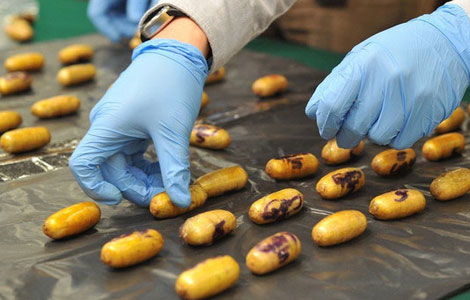

As the leader of a group of students specializing in "integrity and anti-corruption" education, Wang Lei has often found himself in a dilemma over the rising number of scandals in China's universities.
"People say that we 'give medicine to the children while the adults are sick' and ask why don't we fight corruption in the university, rather than educating students (about it)," said Wang, a post-graduate majoring in public administration at China University of Mining and Technology in Beijing.
"We are disappointed by misconduct because we always expect teachers to have higher moral standards than government officials."
Zhang Junyi, who heads a similar group at Beihang University in Beijing, shared Wang's embarrassment. "Many people say we should educate those in power, not the students. But that's beyond our ability. All we can do is help to foster probity in the minds of our fellow students while they are still young and have dreams and faith," he said.
With corruption an increasingly important issue in China, 104 research centers into clean governance have been established in universities, as well as more than 30 student groups on integrity in education, according to Ren Jianming, director of the National Association of Clean Governance Research and Integrity Education.
However, this type of education mainly teaches students to behave themselves when they assume power rather than learning to be watchdogs, something that should play an important role in good governance.
"Education is almost of no help in preventing corruption among university leaders. Ideally, every teacher and student should be involved in the management of the university, but under the current system they don't really have the rights to information and governance," said Ren, who believes that integrity education is still of crucial importance and should be expanded nationwide.
"Today's students will be the leaders in the future. When they learn more about good governance, the rule of law, and democracy, there is a better chance that they will work in accordance with that philosophy in the future," he said.
He Zengke, a senior researcher with the Central Complication and Translation Bureau, said changing the prevailing culture in the education sector is of crucial importance, otherwise the students will become inured to misconduct during their college years.
"The students are expected to learn about justice, autonomy, compromise and cooperation on campus. However, in China the students' union is not self-governing and corrupt practices are also related to promotion in the union and in gaining scholarships," he said.
In a research project into corruption at Chinese universities conducted last year, He found that the students are more tolerant of corrupt behavior than their parents and teachers. "Corruption also has intergenerational transmission," he said.
Zhang was more optimistic. Last year, when his college awarded a scholarship without announcing the names of the successful students or the selection criteria employed, two of his classmates questioned the administrators, who apologized.
"It didn't change the result, but at least they (the authorities) admitted their mistake and made the required information public. There's a growing awareness of rights among my generation, and that's where progress will come from," he said.







